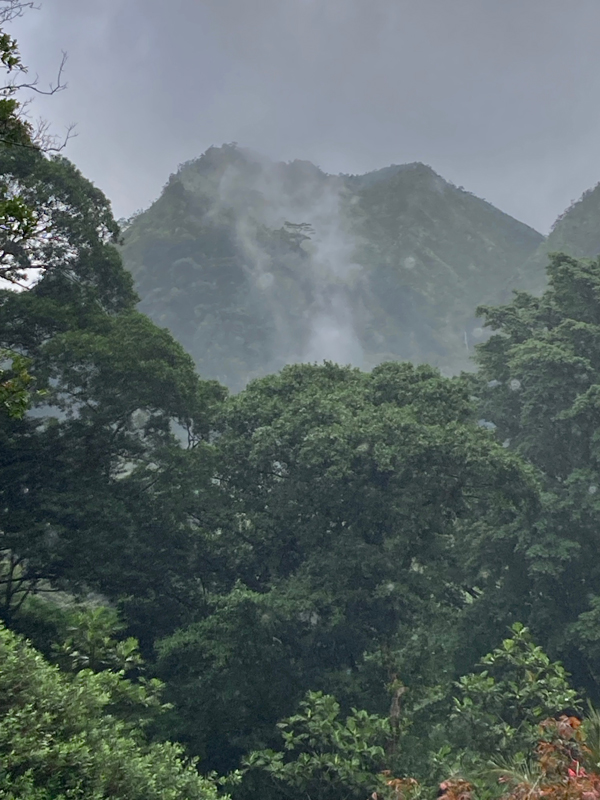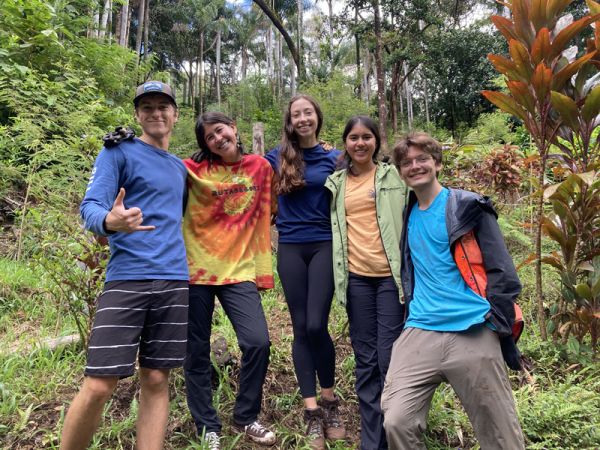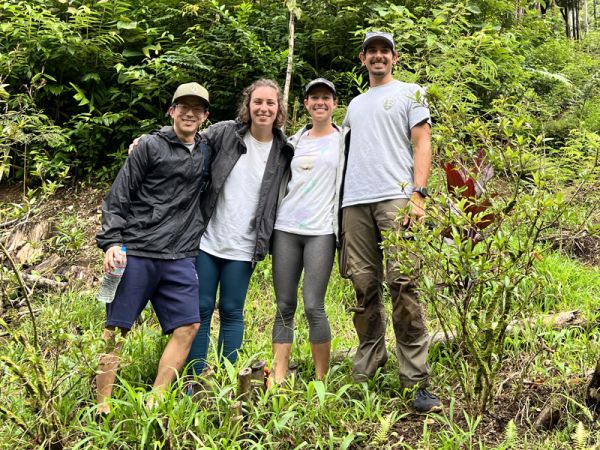PI-CASC SURFers and Grad Scholars reflect on working in and with the community

June saw the first month of our Summer Undergraduate Research Fellowship (SURF), with five students from the University of Hawaiʻi at Mānoa embarking on 10-week projects in a variety of fields. Rising juniors and seniors, the SURFers are all taking their first forays into climate science-related projects, covering a range of topics: characterizing natural koa regeneration to improve forest management; using microbiology to investigate the health of a future warmer ocean; exploring possible climate-induced shifts of invasive fire-prone plants; quantifying the added benefits of marine protected areas to fisheries in warming waters nearby; and investigating how sea-level rise may impact estuarine fish biodiversity.
Two weeks after the cohort had a chance to meet each other at a SURF orientation, they reassembled with four current PI-CASC Graduate Scholars for a workshop introducing them to suggested best practices for conducting research with and in communities.
The Graduate Scholars also represent a wide variety of research topics with a heavy USAPI bent: examining the benefits of ridge to reef management in Palau; creating a sea-level rise viewer for American Samoa; genetically cataloguing giant clam stocks in American Samoa; and using machine learning to improve projections of Hawaiʻi’s future climate.
After a round of brief introductions, the day began with an exercise in giving back to the community by participating in an outreach activity at the rain-drenched Lyon Arboretum, near the head of lush Mānoa Valley. For two hours, our little group of volunteers cleared invasive plants from around aspiring koa tree seedlings and saplings. It was a prime opportunity for get-to-know-you conversations and advice swapping.

“Through all the Kūlana Noiʻi workshops we lead,” reflected Katy Hintzen, “student researchers have some of the most nuanced perspectives on how to approach ethical and reciprocal community partnership. It’s always a pleasure to learn from them.”
All the workshop participants ended the day with positive and sincere reflections, boding well for the future application of what they learned.
In another month the SURFers will come together again for their final symposium, this time to share with us what they have accomplished over their time with PI-CASC. We look forward to that event!



